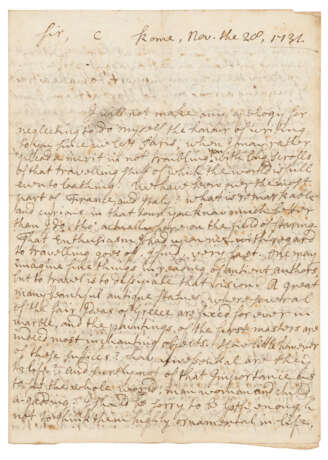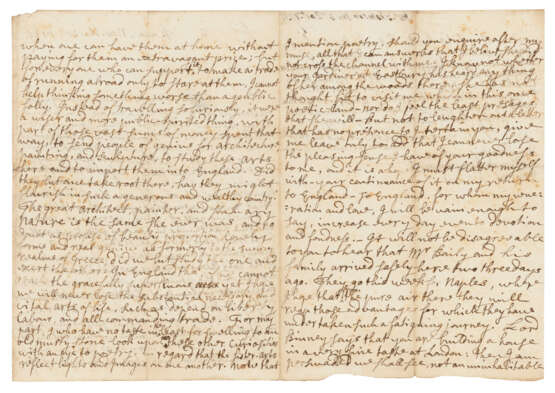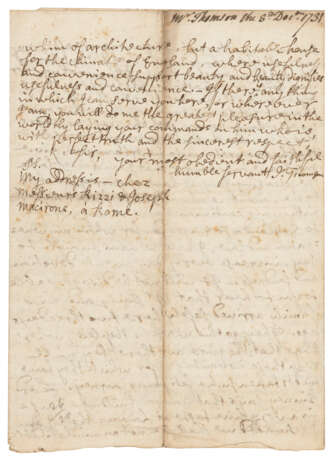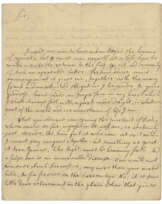ID 1108985
Lot 185 | James Thomson (1700-1748)
Estimate value
£ 1 000 – 1 500
Autograph letter signed (‘J. Thomson’) to George Bubb Dodington, Rome, 28 November 1731
3½ pages, 150 x 209mm, bifolium. Provenance: Miss M. Eyre-Matcham, 1909; Christie's 11 & 12 June 1980, lot 512.
‘That enthusiasm I had upon me with regard to travelling goes off, I find, very fast’: Expressing his disillusionment with travel abroad and an increasing fascination with liberty and the merits of Britain. Despite praising the great merits of art and antiquities found across Europe, ‘the paintings of the first masters are indeed most enchanting objects’, Thomson claims them not to be ‘of that Importance as to set the whole world, man woman and child a-gadding’. Arguing against the ‘extravagant price’ of travelling to view these artistic merits, he offers the ‘more public-spirited thing’ to do, to ‘send people of genius for architecture, painting, and sculpture, to study these arts there and to import them into England’, allowing these new imports to ‘flourish in such a generous and wealthy country’. Continuing, ‘In England tho’, if we cannot reach the gracefully superfluous yet I hope we will never lose the substantial necessary and vital arts of life, such as depend on liberty, labour, and all-commanding trade’. Thomas responds to Dodington enquiring ‘after my muse’, noting: ‘I believe she did not cross the channel with me’. Concluding, he discusses a family who have recently come to stay with him and congratulates Dodington on the building of his new house.
Thomson’s musings within this letter can be viewed as the precursor to ideas expressed within his major work Liberty, published in 1734. A lengthy monologue by the ‘Goddess of Liberty’, the poem follows her travels through the ancient world and then through English and British history, with the Great Revolution of 1688 serving as the resolution.
| Address of auction |
CHRISTIE'S 8 King Street, St. James's SW1Y 6QT London United Kingdom | |||||
|---|---|---|---|---|---|---|
| Preview |
| |||||
| Phone | +44 (0)20 7839 9060 | |||||
| Buyer Premium | see on Website | |||||
| Conditions of purchase | Conditions of purchase |






